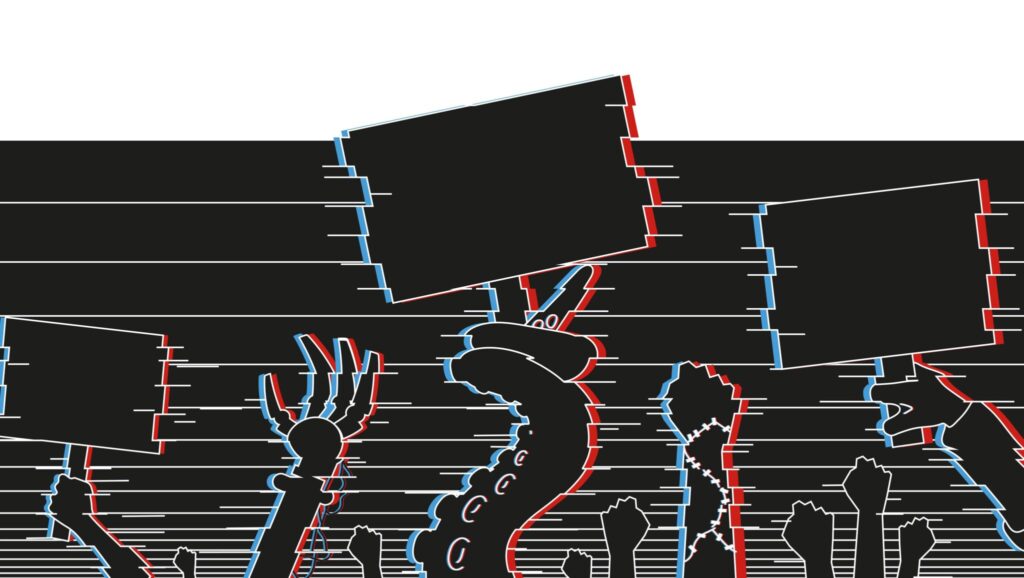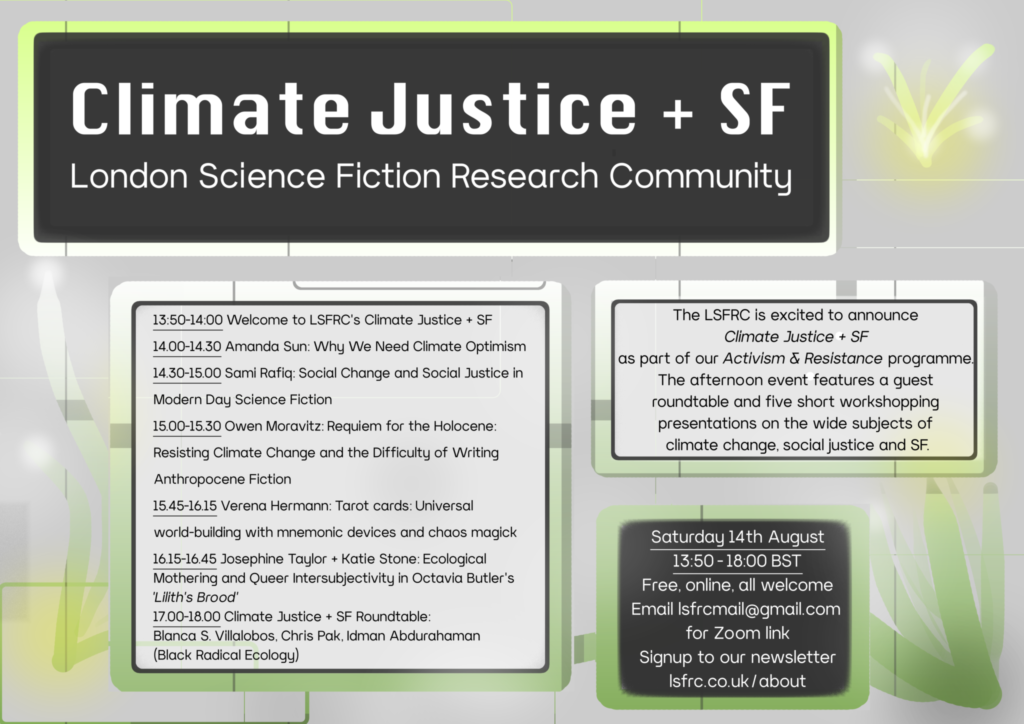
Theme
In an age when Me Too, Black Lives Matter, Decolonise the Curriculum, Refugees Welcome, and movements for global solidarity with oppressed populations have become part of mainstream discourse, it is vital to re-examine the relationship between activism, resistance and the mass imagination vis-a-vis science fiction. As a genre dedicated to imagining alternatives, science fiction is an inherently radical space which allows for diverse explorations of dissent. It is, also, a space that has been rightfully critiqued for its historic inequities favouring white cishet men (as recently addressed by Jeanette Ng during the 2019 Hugo Awards among others). There needs to be reckoning with how precarious bodies engage in activism and resistance in the context of their material realities and restrictions. Therefore, we must deny universalising a single experience as “radical enough” and instead acknowledge how communities in the margins – queer, trans, disabled, neurodivergent, BIPOC, immigrants and refugees, religious minorities, indigenous populations, casualised workers, the homeless and unemployed – have specific ways of subverting and undermining the system, as well as specific stakes and reasons to do so. It is imperative to not only revisit how science fiction has been a space for activism and resistance, but also resist and challenge the genre’s shortcomings.
Events
Queerness & SF: Online guest roundtable and presentations, 3rd July 2021

Climate Justice + SF: Online guest roundtable and presentations, 14th August 2021

Annual Conference
Held across 9-11 September 2021, the online Keynote Speakers were Grace Dillon and Radha D’Souza, while the Guest Creators were Jeannette Ng, Rivers Solomon and Neon Yang.
For our 2021 conference, the LSFRC welcomed submissions that explore the theme of “Activism and Resistance.” We recognised the urgency of this theme and the broad ways in which it can be interpreted and applied. We welcomed contributions that explore SF as the site of activism and resistance, critical reflections of activism and resistance against SF’s tradition so far, and broader contributions on the topics of activism and resistance. We were especially keen to welcome practitioners, activists, change-makers and dissidents who are working to create a more equitable world. We do not adhere to strict reading of the term SF; instead, we encourage a widening of the genre to highlight and uplift different voices and perspectives. We invited proposals for papers, panels, workshops, protest and disruption sessions, performances, installations, and creative responses to the theme, and we wished to actively encourage alternative and innovative forms of presentation and engagement.
Possible topics suggested in the CfP:
- Depictions and history of protest in SF
- Anti-capitalism, anti-authoritarianism, anti-imperialism and decolonisation, and other anti-establishment politics in SF
- Utopia, dystopia, ustopia
- Politics of the margins in SF – queerness, disability, race and ethnicity, nationality, religious minorities and caste, immigrants and refugees
- Reproductive justice in SF
- Depictions of class, class warfare and social reproduction
- Climate justice in SF
- Futurisms from specific race and ethnic perspectives – Afrofuturism, Indigenous futurisms, Asian and South Asian futurisms
- Reform, rebellion and revolution in SF
- Cyberpunk, steampunk, dieselpunk, silkpunk, Afropunk, solarpunk, acid communism as forms of dissent
- Specific SF response to contemporary activist movements – Trans Justice, Me Too, Black Lives Matter, Refugees Welcome, and others
- Critiques of established/Western SF
- Challenges to the canon
- Limits of accessibility in SF
- Limits and critiques of genre writing
- Lack of diversity versus tokenism in SF
- Value of #OwnVoices
- Toxic fandom and gatekeeping
Conference Documents
Conference Call for Papers
Conference documents
Climate justice event
Queerness in SF event
SFRA Country Report by Francis Gene-Rowe
Grace Dillon’s Conference Keynote
SFRA Review symposium